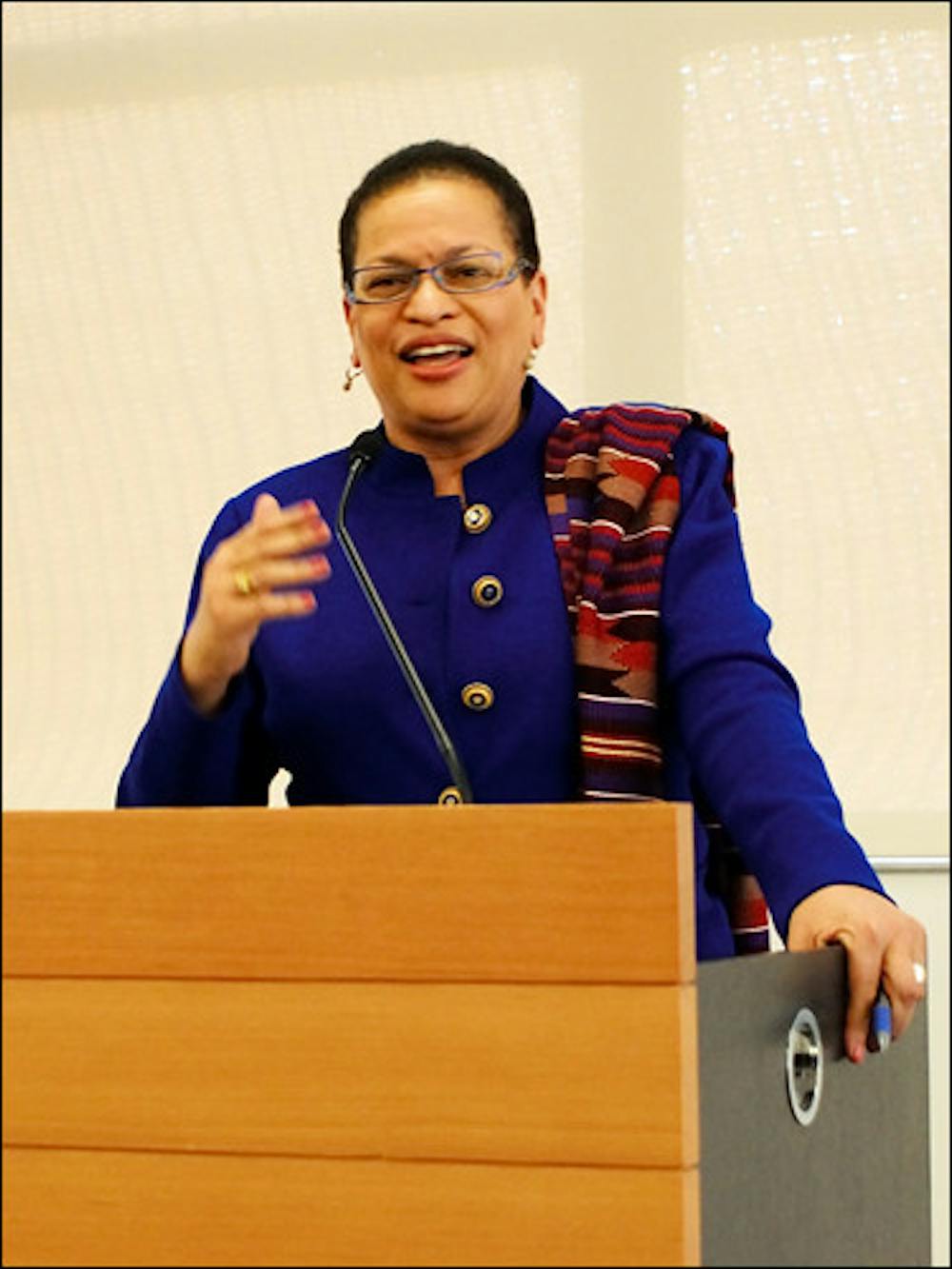Because young people are the way of the future, issues affecting younger generations should be more of a priority, Julianne Malveaux said Monday in a lecture geared toward students.
The lecture, titled “Unfinished Business: The Top Ten Issues Your Generation Faces,” was part of the 14th annual A. Wade Smith Memorial Lecture on Race Relations, and was held at the Tempe campus.
Event planners chose Malveaux to speak because of her ability to connect with young people and her knowledge of the issues they face, said Ashley Roth, an intern for the Canon Leadership Program, which sponsored the event.
“We wanted to bring someone qualified to talk with students about issues they are currently facing, especially in these economic times,” said Roth, an education graduate student.
Malveaux, president at Bennet College for Women, in Greensboro, N.C., said as a college president, she makes herself available to students, which allows her to relate with them.
Additionally, Malveaux is an economist who focuses on race, culture and gender, and the influence they have on the economy.
Before she went through her top 10 list of issues, Malveaux stressed to students the importance of gaining leadership skills.
“It’s not about just standing in front of folks, and it’s not about telling people what to do, but allowing people to find what is inside,” she said.
In her list of issues young people face, Malveaux included the economy, the environment and civic engagement.
Also on her list was the issue of economic justice, and how race, gender and class affect the economy separately.
“The economy is generating different results for different people,” she said. “The poverty rate for all Americans is 12.8 percent. For African Americans, it is 24.5 percent.”
Malveaux also said that women still earn about 75 percent of what men make annually and are not fairly represented in the workplace.
To help this problem, she introduced her theory of “fair share thinking”— that women should make up half of Congress and half of Fortune 500 CEOs since women make up half of the population.
Another issue Malveaux deemed important was identity formation. She said the way people identify themselves, whether by race, gender or sexual orientation, is an important decision to make as a young person.
“The younger you are, the more important it is to get in touch with yourself,” she said.
At the end of her discussion, Malveaux emphasized that she hopes eventually, through all the issues young people face, that students are able to feel “at home” wherever they are.
“What I want for young people is for them to be at home in the world and to have that sense of ‘I belong everywhere,’” Malveaux said. “My hope for you is to be at home —in all comfort — wherever you find yourself.”
Students who attended said they enjoyed Malveaux’s lecture and thought her point of view was worth hearing.
Event attendee Chris Johnson said he felt Malveaux’s talk was not a typical lecture, which is why he enjoyed it.
“[Malveaux] was really relatable and down to Earth, though still able to get across complex ideas,” said Johnson, a history junior.
Fellow attendee Hanh Luc said that Malveaux’s notion of feeling “at home” hit close to her heart, since sometimes she feels uneasy in her environment.
“Being in a male-dominant society, and as a minority, sometimes I don’t feel ‘at home,’” said Luc, a mechanical engineering technology senior.
Reach the reporter at abigail.gilmore@asu.edu.




